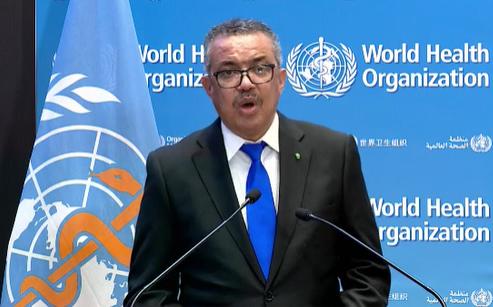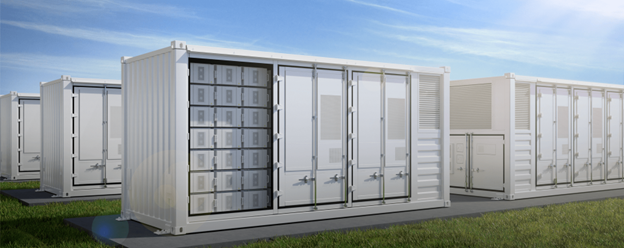Dr Patrick Amoth, Chair of the Executive Board,
Excellencies, dear colleagues and friends,
Five years ago, you, the Member States gave me the honour of my life, when you placed your trust in me to lead and transform this vitally important global organisation.
I told you then that my priority was to listen, and that is what I have tried to do.
I listened to you about your priorities and ideas, and what you expect from your WHO.
And I listened to those who know WHO best – our workforce, my colleagues – for their ideas about how to make this Organization the best it can be.
Those ideas became the basis of the transformation, to make WHO an Organization that can deliver a measurable difference to health in countries, in six ways:
By the way, I would like to share with you that I continue to listen to our staff every week on Thursdays, to listen to their advice and innovative ideas. The culture has continued. When I was Minister of Health and Minister of Foreign Affairs in Ethiopia, I used the same thing, listening on Thursday to my staff, because listening is the basis. If you listen, the next steps will be okay.
From listening to Member States and staff, a new strategy – the 13th General Programme of Work – to move us from a focus on outputs to a focus on outcomes has been developed;
New processes, to make us more efficient and effective;
A new operating model, moving from an organization that is fragmented towards one that is integrated, aligned and agile;
A new approach to partnerships, moving from risk aversity to risk management;
A new approach to financing, to move us towards a more sustainable and predictable funding model;
And a new culture, built on a shared commitment to service, professionalism, integrity, collaboration and compassion.
That was the product of listening to Member States and listening to my colleagues, my staff.
Then, as you know, two years ago, COVID-19 changed everything. But the transformation – built on the ideas and energy of our staff – had positioned us to respond more rapidly and effectively than to any previous emergency.
Let me take a moment to share a story from the beginning of the pandemic that really touched my heart and gave me energy and inspiration.
On December 31st 2019, New Year’s Eve, as most of the world was having a party, our WHO colleagues were at work, scanning potential signals as they do 365 days a year.
And that's when they saw the first signal about a cluster of cases of viral pneumonia of unknown cause, from a website in Wuhan.
They didn’t say it could wait until the New Year, they acted immediately, alerting me and others.
The next day, January 1st, they didn’t take a holiday, they continued to work to verify the signal, and the next day, January 2nd, they confirmed it, triggering the response across the entire organization.
They said we have a new disease which is serious, they didn’t have a New Year’s Eve, a New Year’s celebration, working throughout – and me too, although I took my first holiday since I joined WHO, and I remember that I was in Dubai, but it wasn’t a holiday for them and it wasn’t a holiday for me. That was the first holiday in 5 years for me, and that didn’t even work, because of the bad news.
In the days, weeks and months since then, our staff have continued to energise, humble and inspire me with their skill, dedication and commitment to serving and protecting the world’s people.
And in the days, weeks, months and years ahead, our staff will continue to be the eyes and ears, the arms and legs, and the beating heart of this organization.
During the pandemic, health and the work of WHO have been discussed around the fire and the kitchen table as much as around cabinet tables and boardrooms.
Too often, health has been viewed as a cost, but it has never been clearer that health is an investment in the economy, society and security.
As I outlined in my speech yesterday, my vision for the next five years rests on five priorities, to address the shared challenges we face.
I’m sorry if I’m going to repeat what I said yesterday, but these are the same priorities, based on the vision.

First, a radical shift towards promoting healthy lives and well-being, and preventing disease by addressing its root causes.
As I said yesterday, the challenge we face is to move towards true health care, not sick care.
That means empowering people to take charge of their own health in the daily decisions they make.
And it means working with governments to provide an enabling social, economic and commercial environment that encourages and incentivizes people to live healthier lives.
Healthier populations can cut disease burden in half, reduce the strain on health systems, increase workforce productivity and improve lives.
The best way forward is keeping our citizens and our people healthy.
And there is progress to build on, through the achievements we have made to eliminate trans fats, reduce tobacco use, improve nutrition and air quality, and more.
Looking forward, my commitment is to strengthen strategic policy dialogue with Member States, using a whole-of-government approach, to provide our best advice on how to make your populations healthier.
I will also continue to enhance our focus on the existential challenges of the climate crisis and antimicrobial resistance. Climate change impacts our health more seriously than any other factor.
===
Second, we must urgently reorient health systems towards primary health care, as the foundation of universal health coverage.
Again, there is progress to build on, including the Astana Declaration on Primary Health Care and the political declaration on Universal Health Coverage, which all Member States endorsed at the UN General Assembly in 2019. I was very happy to have that political support from all Heads of State and Heads of Government.
However, we are now facing a shortfall of up to 840 million against our target to see 1 billion more people benefiting from universal health coverage.
After decades of progress, COVID-19 led to backsliding on virtually all health indicators and out-of-pocket health expenses are pushing millions of people back into poverty.
This too is a global health emergency.
We must reverse these trends. But we must also go beyond seeing health merely as a service that governments provide, but as a fundamental human right that is enshrined in the constitution of every nation on earth.
I use this opportunity to ask each and every country who doesn’t recognise health as a fundamental human right, to do so, because health is central, and there should be a commitment by all governments to treat health as a fundamental human right in their constitution.
Our new Council on the Economics of Health for All is developing recommendations around innovation-led transformation of our health systems that spur economic wellbeing.
The new WHO Academy will provide millions of people around the world with rapid access to the highest quality learning in health.
And I will expand our special programme on primary health care – the glue of our triple billion goals – to provide intensive support to all low- and lower-middle-income countries, and to be active in all countries.
At its heart, primary health care has a commitment to equity.
Accordingly, I will enhance our focus on the least-served, most marginalised populations.
This must include gender equality, alongside migrants and refugees and internally displaced people, LGBTIQ+ and indigenous groups.
===
Third, we must strengthen systems and tools for epidemic and pandemic preparedness and response at all levels.
Shortly after I took office five years ago we faced a dangerous Ebola outbreak in the Democratic Republic of the Congo.
By the way, when Ebola outbreak was raging – I have been there 14 times, and two times I was stuck in a conflict because 17 armed groups operate in North Kivu – very risky.
Despite the difficult environment we faced, WHO and our partners applied the lessons from the West Africa Ebola outbreak and ensured a successful community-based response integrating the delivery of new vaccines and therapeutics right to the frontline.
Although some people were telling us you that you cannot contain it, we fought two years to contain it there, and I think that’s progress that we should be proud of, because it’s this board that decided to strengthen the emergency programme, and the Ebola outbreak in DRC is a good example, and done based on your guidance.
The pandemic has highlighted the challenge we face – that the world was not prepared, and that the global architecture for pandemic preparedness and response is weak and still fragmented.
I have focused on not only on strengthening WHO’s response capacities at all levels, but also by creating a new Division of Preparedness within the Emergencies Programme, before COVID-19 hit.
Through the WHO Hub for Epidemic and Pandemic Intelligence, the WHO BioHub System and the Universal Health and Preparedness Review, we have worked with Member States to put in place new initiatives to strengthen global health security, reflecting longstanding mandates from the World Health Assembly.
Our new Science Division, with a Chief Scientist, has played a critical role, working with the Emergencies Programme in accelerating research and development of COVID-19 health tools.
The Division of Drug Access, Vaccines and Pharmaceuticals prequalified ten COVID-19 vaccines last year;
The Division of Data and Delivery for Impact is helping to estimate COVID-19 mortality and to develop the Universal Health and Periodic Review;
And we have taken several steps towards enhancing local production of high-quality vaccines and medicines, to enhance health security and universal health coverage.
The decision of Member States at the Special Session of the World Health Assembly to move forward on a new, binding accord between nations on pandemic prevention, preparedness and response is a giant historical stride forward.
I will continue to urge leaders to act with ambition so that negotiations are swift and we are ready to respond to the inevitable next Disease X.
===
Fourth, we need to accelerate progress towards the SDGs through science and innovation, data and delivery, and digital tools.
Whether we like it or not, the way forward is smart and connected.
No generation in history has had more powerful tools to promote health and prevent disease, to deliver innovative health products and services in new ways, and to prepare for, prevent, detect and respond rapidly to outbreaks and epidemics.
But we also face a huge challenge to ensure equitable access to the fruits of science and innovation, so they don’t become another reason more people are left behind. This is the equity issue, which I have been talking about for a long time.
That’s why strengthening data and health information systems in all countries is essential, to measure progress and identify gaps.
I will continue to strengthen our work in science and innovation, including a greater focus on the impact of our now digitised and ‘living’ guidance and the scaling of innovations to accelerate progress.
And I will continue to expand our work on data and delivery, working with Member States to strengthen data systems and increase capacity to identify gaps and monitor progress.
Fifth, we must strengthen WHO’s leading role at the centre of the global health architecture;
Leadership in the global health architecture is core to the work of a Director-General.
Through the SDG3 Global Action Plan, the Access to COVID-19 Tools Accelerator, and new partnerships across civil society, the private sector, sports and technology, we are reaching people WHO has not reached before with life-saving messages.
A strong WHO at the centre of the global health architecture prevents fragmentation and improves value for money, not only for your investments in WHO, but in the entire global health ecosystem.
As part of the transformation, we developed our first investment case, held our first partner forum, set up the WHO Foundation, increased core voluntary contributions and introduced thematic funding.
This shift has given us the flexibility to move money where it can have the most impact, and to better implement the priorities Member States set out in the Programme Budget.
The change we have seen in financing quality is a measure of the trust you put in WHO, and has allowed us to strengthen our programmes and increase funds going to regional and country offices.
But the quality and quantity are still not up to the size of the task.
WHO’s future success will depend on your support for the proposals of the Working Group on Sustainable Financing — to raise assessed contributions to 50% of our budget by 2028-29, and to supplement our programme budget process with a replenishment model.
I ask you to support these recommendations.
On my first day at WHO as Director-General, I said our greatest asset was our staff.
We have focused relentlessly on making WHO a better place to work.
Going forward, we will continue to build an Organization that attracts and retains the best talent from around the world.
I am proud of the gender and geographic balance of my leadership team at headquarters, and I remain committed to improving gender balance and diversity at all levels of the Organization.
During the past year, I have been horrified by reports of sexual exploitation and abuse during the response to the Ebola outbreak in the Democratic Republic of the Congo.
Our response has been robust, including the unprecedented step of handing a rigorous investigation over to an Independent Commission and a strong Management Response Plan.
My commitment to preventing sexual exploitation, and all forms of abuse and harassment, with a victim- and survivor-centered approach, is iron-clad.
Finally, working with our Regional Directors, I will implement the recommendation of the evaluation of WHO transformation “to invest dedicated attention – and resources – towards supporting country-level transformation in the next phase.”
In 2022, as I said yesterday, we can help end the acute phase of the pandemic if we work together to meet the WHO target that every country vaccinate 70% of its population by the middle of the year.
In 2023, we celebrate our 75th birthday. Let’s ensure WHO is on firm financial footing by then and we are on the way to concluding a binding agreement on pandemic preparedness.In 2025, we want to see that the triple billion targets are back on track, which will give us hope of meeting the global goals by 2030.
===
Excellencies, dear colleagues and friends,
Out of the ashes of World War Two, leaders came together and built the UN and WHO to bond nation states together and push for peace.
And what we collectively do next will not only define when the acute phase of this pandemic ends, but it will also define the future of global health and security.
I remain completely committed to serving you, our Member States, and your people;
I am committed to continuing to promoting health and preventing disease;
I am committed to supporting all countries to accelerate towards universal health coverage, based on strong primary health care;
I am committed to making the world safer, by strengthening global health security;
I am committed to harnessing the power of science, research, innovation, data and digital technologies to drive progress in all countries;
And I am committed to building a WHO that is even more effective, more efficient, more accountable and more transparent.
It is with great pride and humility that I submit to you my candidacy for a second term as Director-General.
I ask for your support to continue our journey together to promote health, keep the world safe, and serve the vulnerable.
Your Excellency, thank you so much, and back to you.
I thank you.









